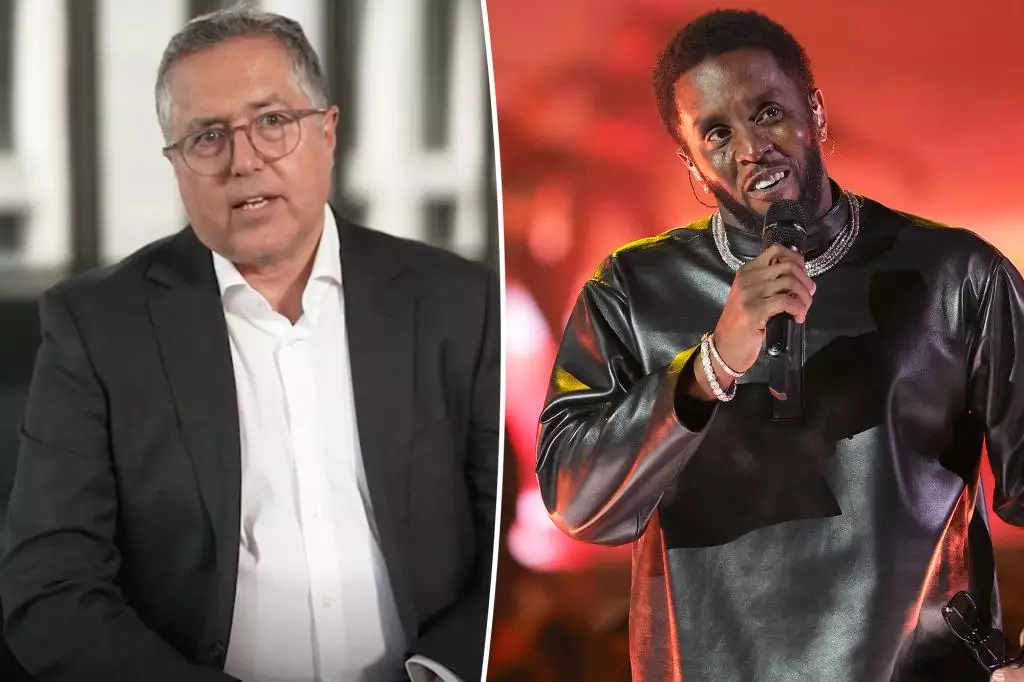The entertainment industry often finds itself embroiled in controversy, but few figures have captured public scrutiny quite like Sean “Diddy” Combs. Recently, he faced serious allegations culminating in a federal indictment that raises critical questions about personal behavior, legal ethics, and societal norms. This article delves into the alleged incidents surrounding Diddy, examining the role of his legal representation, societal implications of the accusations, and the broader ramifications for public figures in the age of social media and rapid information dissemination.
Legal Defense and Public Perception
At the heart of the controversy is Diddy’s attorney, Marc Agnifilo, who has publicly struggled to clarify the bizarre circumstances surrounding the items confiscated during Homeland Security raids on Diddy’s properties. Notably, Agnifilo was questioned about the staggering claim of over 1,000 bottles of baby oil and lubricant that were reported to have been seized. The attorney was clear: the number seemed exaggerated, and he inferred that bulk purchasing—common for someone of Diddy’s means—could explain the seemingly absurd quantity.
The dialogue between Agnifilo and TMZ’s Harvey Levin highlights a critical dimension of media’s role in shaping narratives. Levin’s skepticism about an individual legitimately acquiring such an excessive amount of personal lubricant accentuates a public fascination with scandal, which can overshadow the legal facts. Such sensationalism often transforms a legal defense into a public relations battleground. Agnifilo’s attempts to rationalize the presence of these items exposes the tension between legal representation and public perception; no matter how logical his arguments are, the sensational nature of the accusations tends to dominate headlines.
Diddy’s legal troubles extend far beyond the outlandish quantity of lubricants. The indictment details serious allegations, including racketeering conspiracy, sex trafficking, and violations related to prostitution. The reported conduct during these alleged “freak-offs” suggests a disturbing pattern of behavior that is both criminal and morally reprehensible. Reports claim victims faced non-consensual recording, drugging, and coercion, painting a harrowing picture that contradicts the glamorous persona often associated with Diddy.
The implications of these allegations extend beyond Diddy as an individual; they evoke larger questions about power dynamics in the entertainment industry. High-profile figures frequently exploit their positions, and the consequences for victims are reportedly compounded by systemic inequalities in access to support and justice. Victims often find themselves in vulnerable situations, leading to a cycle of abuse that can remain hidden from public scrutiny for years.
The allegations against Diddy are emblematic of an ongoing cultural reckoning. The #MeToo movement, equally resonant in contemporary discourse, has empowered survivors to voice injustices previously obscured by power and fame. This environment creates a complicated backdrop for high-profile figures, as public sentiment increasingly demands accountability and transparency.
While Diddy’s legal battles ignite discussions about celebrity behavior and the limits of personal freedom, the public’s reaction underscores a growing expectation for integrity and responsibility. The condemnation surrounding figures who exploit their status for nefarious means highlights the potential for social change. The conversation is no longer just about individual misdeeds but reflects a collective demand for a more ethical entertainment industry.
As Diddy faces significant legal challenges, the unfolding narrative serves as a cautionary tale for public figures navigating their personal and professional lives. The scrutiny surrounding this popular yet polarizing figure underscores a transformative moment in societal standards and individual responsibility.
With the legal process taking shape and the public’s judgment fierce, Diddy’s situation illustrates larger themes of power, consent, and accountability that resonate far beyond the confines of his fame. The outcome of these allegations may very well shape the discourse surrounding celebrity behavior and societal expectations moving forward. It reflects not just on Diddy, but on the industry at large, signaling a critical opportunity for transformation in how we view and respond to issues of power and exploitation in entertainment and beyond.


Leave a Reply